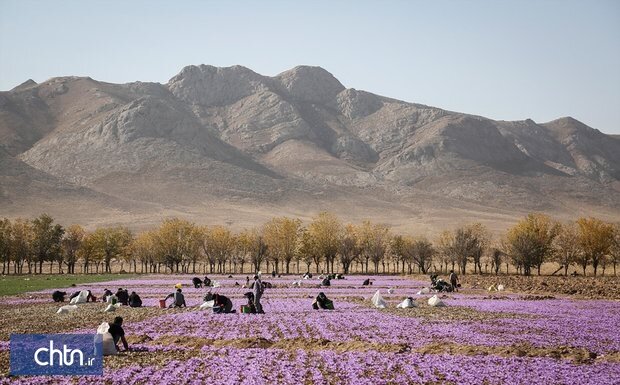Survey to examine role of saffron in tourism development

TEHRAN – A case study is being carried out on the central city of Natanz to find out how saffron farming may contribute to the development of agritourism in the region.
Over that past couple of years, a relatively new field of tourism named “agritourism” is thriving in the region that is aimed most broadly to involve any agriculturally-based operation or activity that brings visitors to a farm or ranch, Alireza Hassanzadeh, the head of a local anthropology research laboratory.
Iranian saffron is known as the “red gold”. Saffron is a magical ingredient in Persian culture, from aromatic foods and colorful desserts to the physical and spiritual medicine. Every year, the saffron harvest season begins in early November. While most other vegetation is gone, the bright purple flowers cover the fields and create an outstanding landscape in dry regions in Iran.
Major saffron producers of Iran are located on the east side of the country. If you would like to see the biggest market, head to Mashhad, which is also known for its religious importance.
“Considering that saffron is the most valuable plant in Iran and it has special characteristics in prevention and treatment of some diseases, farming it by the means of proper planning and investment holds a significant potential to attract many domestic and foreign visitors,” the official noted.
Agritourism and nature-tourism enterprises might also include outdoor recreation (fishing, hunting, wildlife study, horseback riding), educational experiences (cannery tours, cooking classes, or tea or coffee tasting), entertainment (harvest festivals or barn dances), hospitality services (farm stays, guided tours, or outfitter services), and on-farm direct sales (u-pick operations or roadside stands).
Today, agritourism is regarded as a stimulus to the imbalanced economy of agriculture sectors and the tendency for emotional and nostalgic roots of the modern world citizens and due to factors such as visitor participation in farm activities, direct purchase of products, spending a night at a farm, curiosity and learning about the farm and agriculture products has been able to create a wide target population.
AFM/MG
